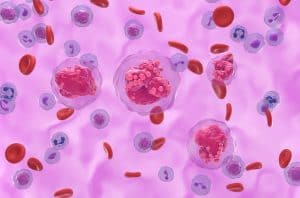
NICE agrees approval deal for ultra-rare juvenile bone disease
pharmafile | July 5, 2017 | News story | Research and Development, Sales and Marketing | Alexion, NICE, Strensiq
NICE has announced that it has decided to approve Alexion Pharma’s Strensiq (asfotase alfa) for the treatment of ultra-rare disease paediatric-onset hypophosphatasia, an inherited condition which affects as few as between one and seven babies in England each year, meaning it can now be accessed on the NHS.
The drug was previously available only to those babies suffering from the most serious form of the disease; the new decision was reached after Alexion and NICE came to an agreement over pricing of the drug as part of a five-year managed access scheme.
Hypophosphatasia is a disease which causes important minerals such as calcium and phosphorus to deposit incorrectly in developing bones – an often fatal condition in those with perinatal or infantile-onset forms of the illness. Those affected with the disease can lose their life within one year, with a mortality rate of up to 100%. Thanks to the decision, an even wider group of patients can now benefit from the effects of the drug and be given a chance where they would otherwise not survive.
The deal makes Strensiq the first available drug which targets the underlying causes of Hypophosphatasia. The treatment will be available to eligible children and adults for five years, during which time the duration of further treatment will be assessed.
Commenting on the new approval, Professor Carole Longson, Director of the Centre for Health Technology Evaluation at NICE, said: “Asfotase alfa is an important development in the treatment of this devastating condition that has been shown to save lives and prevent or delay its progression. However, up until now the committee felt the benefits of the drug were too uncertain in the whole population in relation to its very high price for them to be able to recommend it for any but the most seriously affected.
“The new deal, which includes a managed access agreement, between the company and NHS England means that people with the greatest clinical need for treatment can be identified and the costs and risks to the NHS have been reduced. We are very pleased therefore to be able to recommend it as an option for treating paediatric-onset hypophosphatasia.”
Matt Fellows
Related Content

NICE recommends migraine treatment for NHS use
The National Institute for Health and Care Excellence (NICE) has shared draft guidance recommending AbbVie’s …

GSK’s Jemperli recommended by NICE for endometrial cancer treatment
GSK has announced that the National Institute for Health and Care Excellence (NICE) has recommended …

NICE recommends SC treatment of AbbVie’s Tepkinly for patients with DLBCL
AbbVie has announced that the National Institute for Health and Care Excellence (NICE) has recommended …







